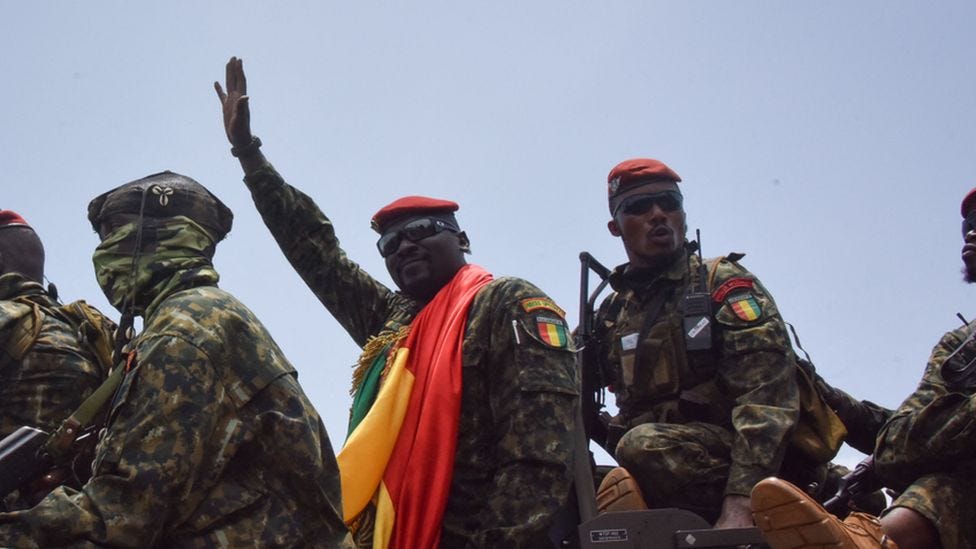Guinea Seizes $1.4B UAE Project in Latest Africa Setback
The nationalisation push offers a stark warning to foreign investors across the continent.
On August 7, the government of Guinea revoked the mining concession of the Guinea Alumina Corporation (GAC), a subsidiary of the Emirati conglomerate Emirates Global Aluminium (EGA). The move effectively seizes EGA’s $1.4 billion flagship project in the country. This development marks a significant blow to Abu Dhabi’s ventures in Africa and serves as a stark warning for foreign investors operating on the continent. The fallout also creates an opportunity for Turkey to capitalise on yet another Emirati misstep, something Ankara has repeatedly done across the continent to expand its influence. Moreover, the incident casts a deeper, more ominous shadow over the UAE’s increasingly controversial and disorderly engagements in East Africa, raising further questions about the sustainability of its regional strategy.
Resource Nationalism Wave
The revocation of EGA’s mining concession in Guinea marks a pivotal moment in the UAE’s resource engagement strategy in Africa. Citing project delays, failure to build local alumina refineries, and a customs dispute, the Guinean government transferred GAC’s $1.4 billion bauxite project to state-owned Nimba Mining SA without compensation. The move mirrors recent examples of resource nationalisation in Niger’s uranium sector and Mali’s gold industry. EGA now faces a $488 million writedown, reducing its 2024 profits by an estimated 24%. With GAC accounting for 2–3% of global bauxite supply, the disruption threatens smelter inputs, raises production costs, and forces a reevaluation of Abu Dhabi’s offshore mining ventures in high-risk jurisdictions.
Strategic Vulnerabilities in Abu Dhabi’s Africa Policy
More critically, the episode exposes deeper vulnerabilities in the UAE’s broader Africa strategy. Since 2019, Abu Dhabi has invested over $110 billion across mining, ports, and renewables, often pairing capital with security agreements to secure influence and supply chains. However, this model is increasingly encountering nationalist pushback, as African governments reclaim greater control over strategic assets. The Guinea case signals a broader shift: opaque, top-down resource deals are being replaced by more assertive, sovereignty-driven policymaking.
Compounding this setback is the potential for Turkey to again exploit an Emirati vacuum. Ankara has consistently capitalised on UAE missteps across Africa: securing military and infrastructure footholds in Somalia, brokering influence in Libya after the failure of UAE-backed forces, and positioning itself as a neutral mediator in Sudan’s civil war. The Guinea case, while primarily economic, could follow this familiar pattern. With growing trade ties and corporate presence in West Africa, Turkey may once again leverage Emirati losses to expand its influence.
In this context, the UAE’s loss in Guinea is not an isolated incident, but part of a broader trend. Gulf, Chinese, and Western investments alike now face heightened scrutiny and rising political costs across Africa. As conflict spreads and political transitions accelerate, foreign investors must navigate an increasingly fragmented and nationalized landscape.





It’s never anything to do with the best interest of the country they are siphoning off. No wonder 💭 the governments are now nationalizing the resources. So it helps build up the infrastructure in their country. Not only for foreign interest. Pillaging is done.